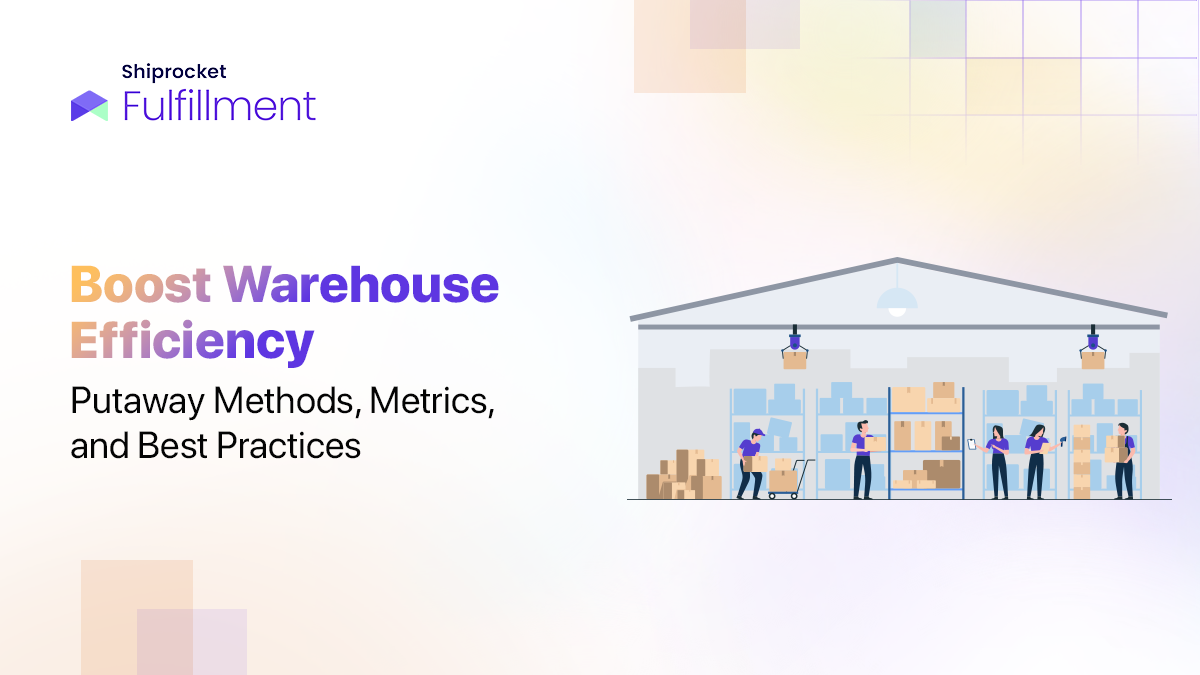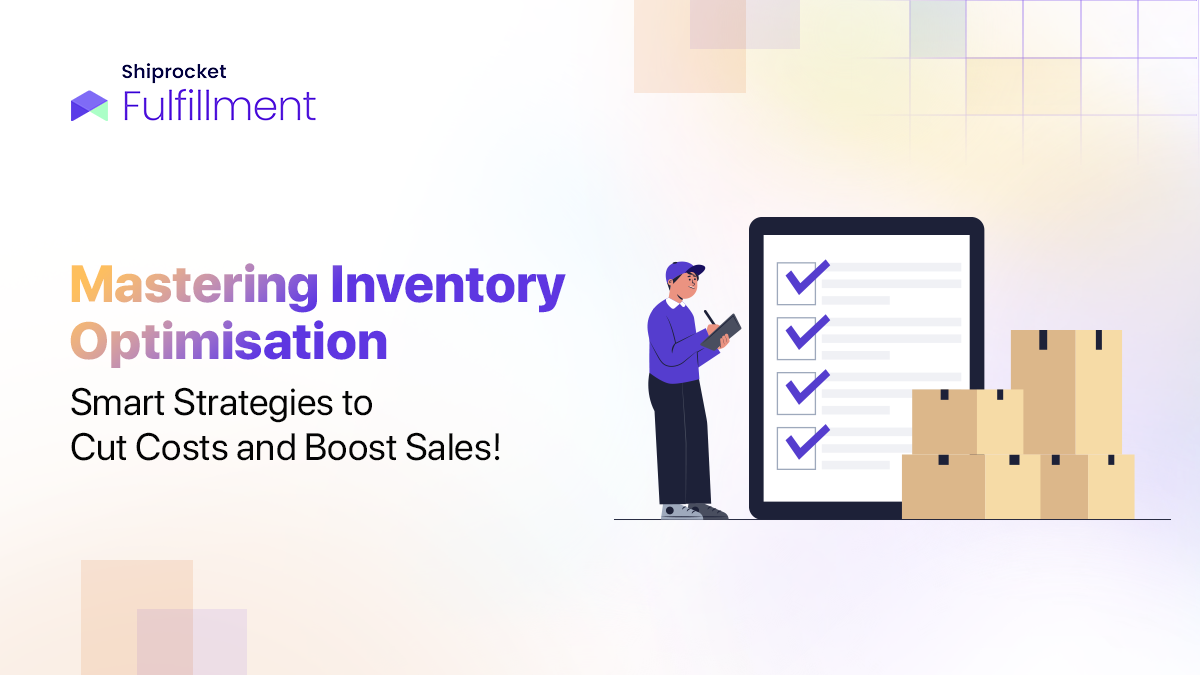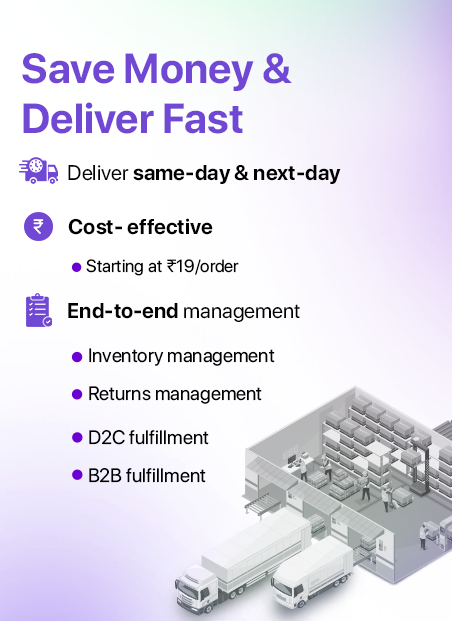Importance of Warehousing for Your Business
Warehousing is the process of storing goods safely and securely. It has become one of the pre-requisite requirements for most businesses, whether operating online or offline. However, warehousing is not only limited to storing goods in a safe environment. It also involves keeping track of inventory, increasing order accuracy, and executing quicker shipping.
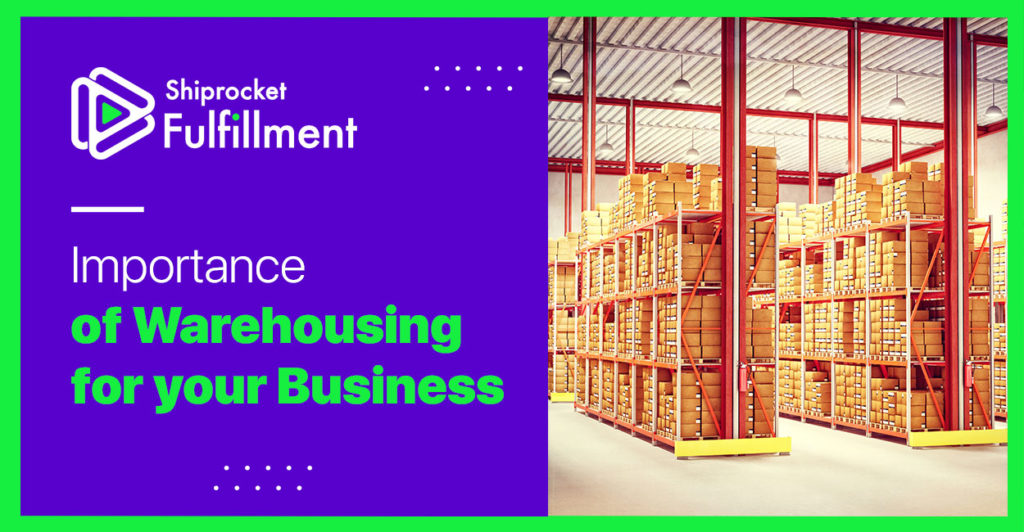
While many may see it as an expense, warehousing can significantly boost productivity and save money as well. The customer journey is not limited to just placing an order, but it ends when customers receive their order. In this sense, a warehouse gives better control over the inventory and ensures customers receive products on time.
Basics of Warehousing
- Inbound: as the warehouse keeper receives the products, he checks-in and logs the products. He puts the products in the correct bins for their easy packaging and dispatching. This is also known as cross-docking.
- Layout and Slotting: products that move fast should be kept in the front. Products that are generally brought together should be kept together or close to each other. Also, products that are often mistaken should be kept separately.
- Picking and Packing: the journey time between receiving an order and shipping can be minimized if the pickers can find products conveniently. Besides, orders can also be aptly packed with an accurate address slip and delivery manifest for dispatching products.
- Shipping: warehousing helps in shipping the orders on time. It helps keep the products at the right time in the right vehicle and with the correct delivery address.
- Product Returns: the returned goods are first unloaded from the vehicle. The goods are checked off against the original order, and the information is reflected in the business owner’s account.
Types of Warehouses
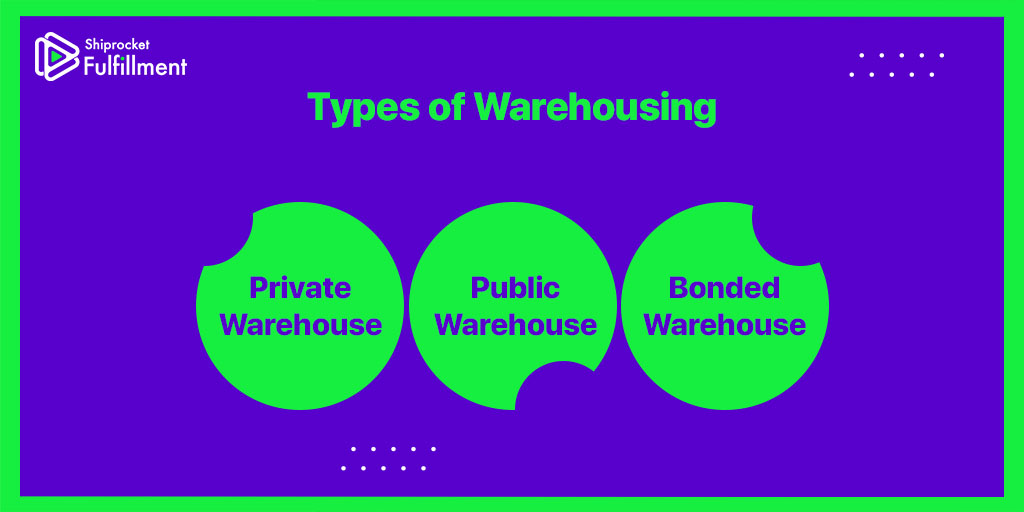
There are three types of warehouses:
- Public Warehouse: public warehouses offer storage facilities to small and big businesses in exchange for a sum of money. It can be owned by an individual or a group of individuals. It works in accordance with government rules and regulations. Not all small businesses can afford warehouses because of huge capital investment. Therefore, they keep their products in public warehouses. The facilities are available 24×7 at a low cost.
- Private Warehouse: as opposed to public warehouses, private warehouses are owned and maintained by a company. It is a company’s private warehouse where it keeps its products securely. Big companies with surplus money can afford to have private warehouses. They have different warehouses across different cities of the country to manage their shipping.
- Bonded Warehouse: this is a government licensed warehouse used to keep imported goods until their owner pays the customs duty. A bonded warehouse is generally located near ports that are operated under customs authority or government. It doesn’t provide products to the owner until the customs duty is paid.
Importance of Warehousing
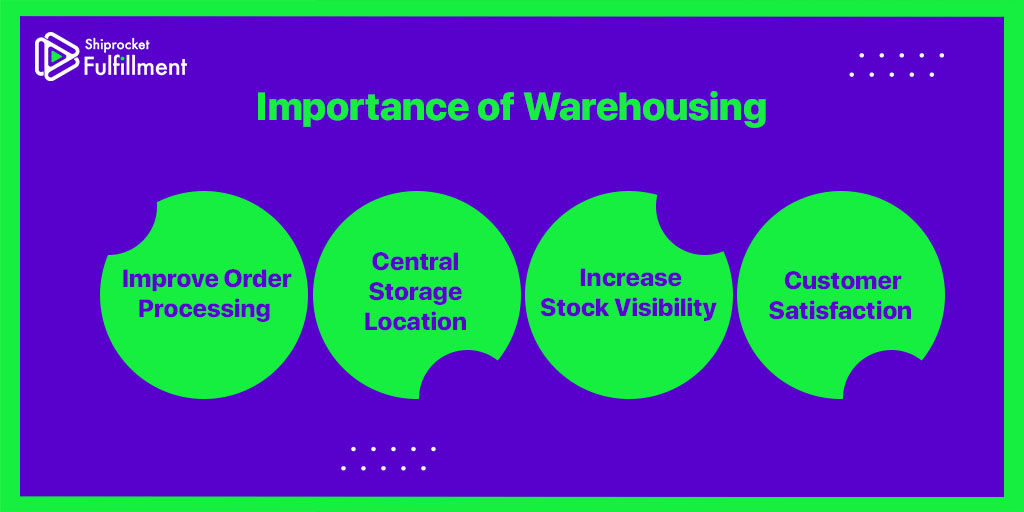
Here are some of the top reasons why warehousing is important for your business.
Improves Order Processing
When buyers make a purchase, the sellers are often worried about the products’ timely delivery. Customers, too, are worried about the timely delivery of their product. Hence, excellent shipping and delivery services are crucial, and warehousing plays a vital role here.
Warehousing helps improve order processing. It helps avoid all the potential fulfillment issues by stocking the product securely. The products are available for packaging and shipping whenever an order is placed. So, you gather the products quickly and reduce potential delivery delays. In a nutshell, warehousing improves order accuracy and decreases all the delays in shipping.
Central Storage Location
If you keep all your products at a central location, it helps you decrease the gap between products and the customers. This means you can store, ship, and deliver products conveniently to save time.
You can choose a warehouse at a central location to quickly receive, store, and distribute products with much ease. Once the products are stored in a warehouse, the warehouse keeper’s responsibility is to handle the product shipment.
Once you ship all your products to the warehouse, they will sort the products and keep them on different shelves. Once the order is received, the products are grouped and packaged to ensure their completeness before they are shipped. Having products kept at a central location, the process takes lesser time, and the products are shipped faster.
You need to choose the location that makes sense for your operations and is closest to your customers. Also, choose the location that can be accessed by you and your staff at ease.

Increase Stock Visibility
Professional warehousing services help provide accurate inventory insights. They have an automatic inventory keeping application, which they utilize to track shipment and inventory data. Access to real-time data enables you to understand your inventory requirements and shipping operations.
Customer Satisfaction
The process of manufacturing a product and shipping can be complicated for businesses. But with the help of warehousing solutions, you can easily deliver the products in a timely fashion. Notably, timely delivery depends on the proper management of inventory and transportation and ensures customer satisfaction.
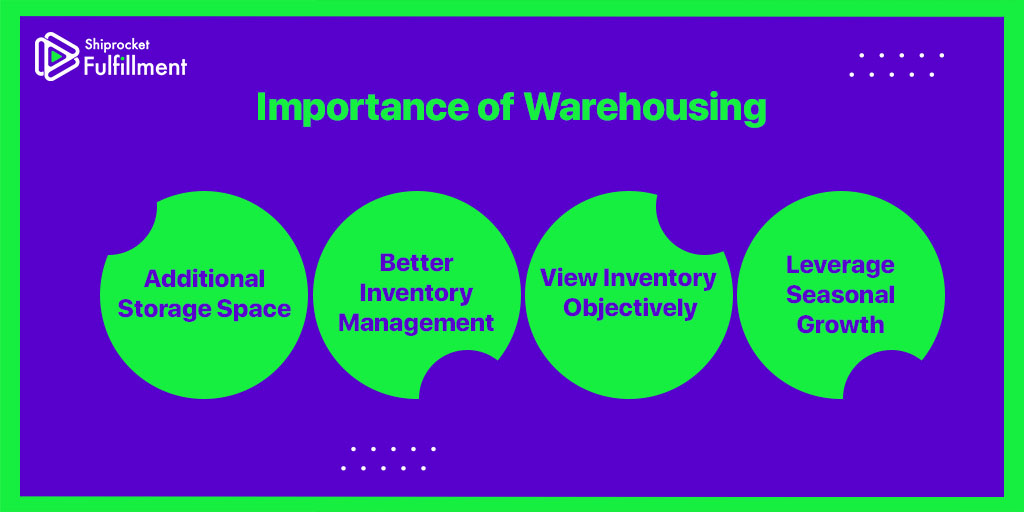
Additional Storage Space
You require additional storage space to store your extra products in the seasons or time-periods when you sell more. For this situation, you can get additional storage space from the warehouse. Besides, you also get safety and protection from robbery for your products. The warehouse is the best place to keep surplus products when you don’t need them immediately.
Better Inventory Management
Many small businesses don’t track their inventory. However, this can lead to late shipments, delayed order fulfillment, and, lastly, low customer satisfaction. The warehouse acts as a central location to keep all the products, track their movement, and manage the inventory. By investing in warehousing, you can store, ship, and distribute products efficiently.
If some of your products go out of stock, you will know about it right away, and you can offer alternative options to your customers rather than asking them to wait for days or weeks.
View Inventory Objectively
The inventory gives a sense of worth. But if you see excess merchandise that is not selling, it will be easy for you to determine what you can do about it. You can quickly discover what is not moving at all and mark it obsolete. Or maybe you can consider selling it at a cut-rate price.
If you offer lower prices, customers might start buying it. This alone can be a great initiative to sell the products off the shelves.
Leverage Seasonal Growth
With the warehousing facility, you can also scale your business when the season comes. As per your warehousing figures, you can determine the purchase trends, and accordingly, you can stock the inventory for seasonal sales. Besides, you can also save your inventory securely when your sales are low.
The Final Say
As a business owner, you get the choice to choose between private, public, or bonded warehouse. It is up to you to choose. But with the discussed importance of warehousing, it does only make sense that you start utilizing warehousing services to streamline your supply chain and boost business productivity.



